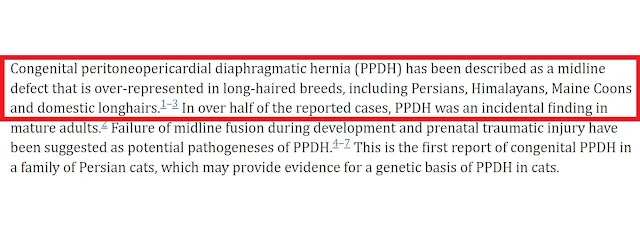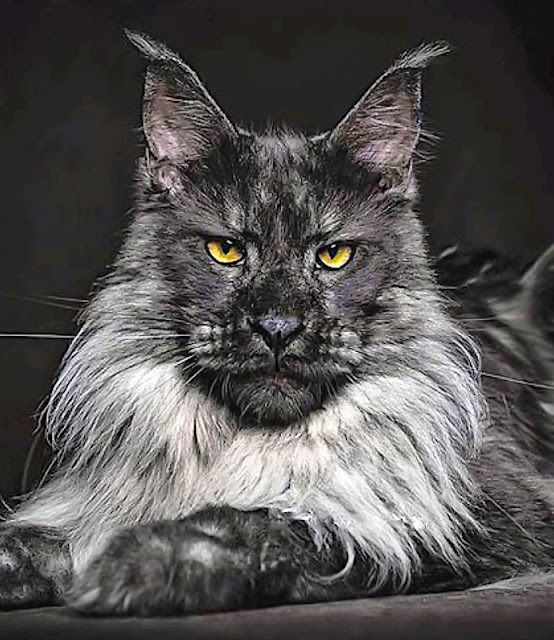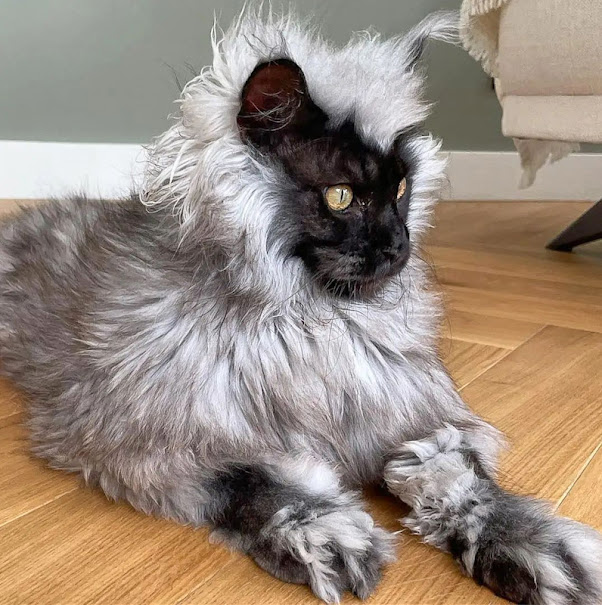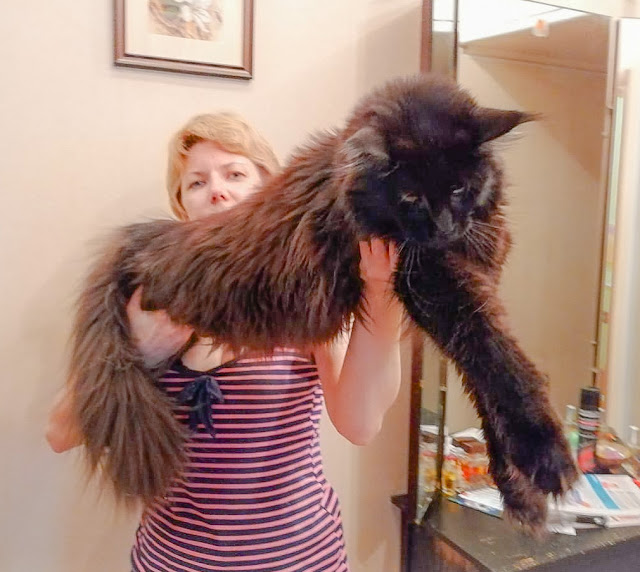Congenital hernia of the diaphragm overrepresented in Maine Coon cats
The full inherited condition i.e. congenital condition is called 'peritoneopericardial diaphragmatic hernia (PPDH)' and in a study published on National Centre for Biotechnology Information website, it is described as being overrepresented in long-haired cat breeds including Maine Coons, Persians, Himalayans and longhaired random-bread cats. I don't know how prevalent this condition is in Maine Coons. It might be very rare. And probably is. What are the symptoms?
According to petmd.com they include irregular heartbeat, labored breathing. The abdomen may move rapidly (palpitate) or feel empty. Reactions such as vomiting, diarrhea, and bloating can occur because of damage to the bowel or stomach.
The study on this was published in 2018. They say that in over half of the reported cases the condition was "an incidental finding in mature adults". "Failure of midline fusion during development and prenatal traumatic injury" have been suggested as potential causes.
'Peritoneopericardial' means pertaining to the peritoneum and pericardium. The peritoneum is a membrane lining the cavity of the abdomen and covering the abdominal organs. The pericardium is a membrane enclosing the heart, consisting of an outer fibrous layer and an inner double layer of serous membrane. I hope that helps.
It appears that when this condition is congenital i.e. inherited it is characterised by the incomplete formation of the septum traversum during early embryonic development which means that the peritoneal cavity and pericardial sac remain continuous in later life.
It would appear that this condition is perhaps more prevalent in Persian cats than Maine Coon cats. Other possible causes include environmental, chemical and toxin effects. All the cats in the study were apparently fed properly under Association of American Feed Control Officials - approved diets with no medications or supplements administered prior to or during pregnancy.
They've suggested that the condition comes from an autosomal recessive mode of inheritance i.e. this is a mutation of an autosomal recessive gene on my interpretation. "Autosomal" means that it is not sex-linked. They could not rule out that it is due to an autosomal dominant trait with incomplete penetrance.
The study focused on Persians and said that the case that there studied "highlights the probability of a hereditary basis of PPDH in Persian cats.











Comments
Post a Comment
Please share your Maine Coon experiences.